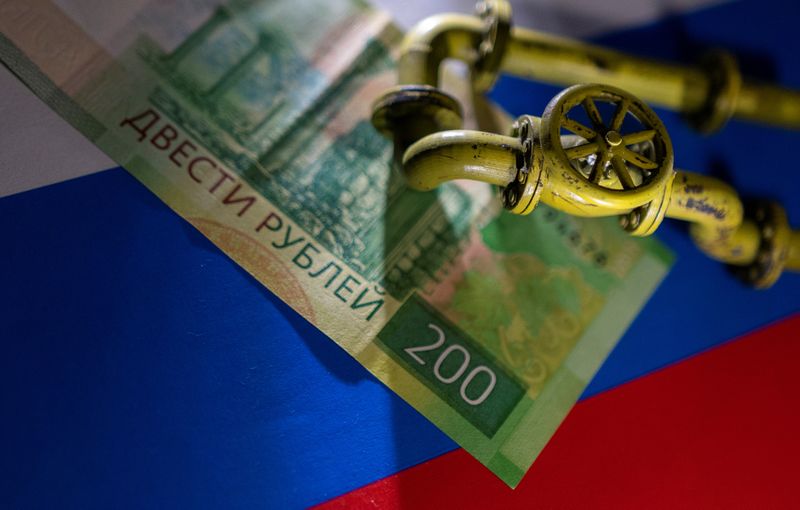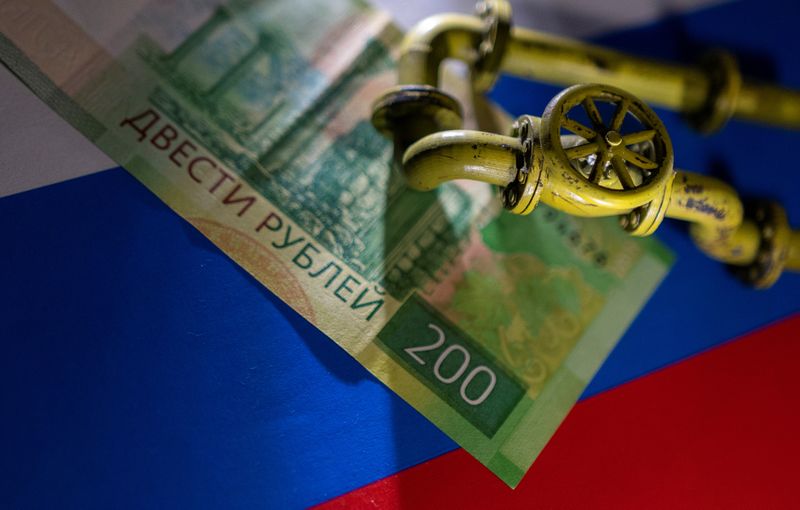
MOSCOW (Reuters) -Russia said on Monday the situation with European countries that buy its gas through a transit deal via Ukraine was very complicated and needs more attention, a day after talks between President Vladimir Putin and Slovak Prime Minister Robert Fico.
Ukraine has said it will not be renewing a five-year deal to pipe Russian gas to Europe, which is due to expire at the end of the year, as it does not want to aid Moscow’s military effort.
The flow accounts for around half of Russia’s total pipeline gas exports to Europe, with Slovakia, Italy, Austria and Czech Republic set to be most affected if it ends.
Kremlin-controlled Gazprom (MCX:GAZP) also exports gas to Europe via the TurkStream pipeline on the bed of the Black Sea.
Kremlin spokesman Dmitry Peskov said he could not give more details about Sunday’s talks between Putin and Fico, which also touched on bilateral relations and the Ukraine conflict.
Fico said that Putin had confirmed Russia’s willingness to continue to supply gas to Slovakia, although this was “practically impossible” once the Ukraine transit deal expires.
It was not clear what potential solution the two leaders might have discussed.
Slovakia has said the loss of supplies from the east would not hit its consumption and it has diversified supply contracts. However, it would drive up its costs and the country sought to preserve the Ukraine route to keep its own transit capacity.
Slovakia’s main gas buyer SPP has contracts for the purchase of gas from a non-Russian source with BP (NYSE:BP), ExxonMobil (NYSE:XOM), Shell (LON:SHEL), Eni and RWE (LON:0HA0).
The benchmark front-month contract at the Dutch TTF gas hub rose by 1.52 euros to 45.33 euros per megawatt hour (euros/MWh) by 1443 GMT, LSEG data showed.
Ukrainian President Volodymyr Zelenskiy on Monday criticised what he said was Fico’s lack of desire to end his country’s dependency on Russian natural resources as a “big security issue” for Europe and Slovakia.
Hungary has also been keen to keep the Ukrainian route, although it will continue to receive Russian gas from the south, via the TurkStream pipeline.
Zelenskiy said last week it might be possible to renew the transit deal, but only if Russia was not paid for the gas until after the war is over, a condition Moscow is unlikely to accept.
“You heard the statement from the Ukrainian side, and you know about the positions of those European countries that continue to buy Russian gas and that consider this necessary for the normal operation of their economies,” Peskov told reporters.

“Therefore, there is now a very complicated situation here that requires increased attention,” Peskov added.
Putin said last week it was clear there would be no new deal with Kyiv to send Russian gas through Ukraine to Europe.
This post is originally published on INVESTING.



